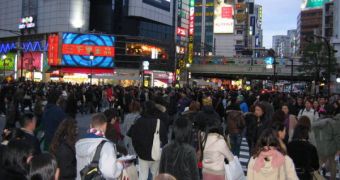Face recognition is one of the characteristics of our brains that make us humans, and evolution has endowed us with this ability so that we don't have to smell each other every time we meet, just to ensure we're talking to the right person. But it would seem that some people are better at it than others, and, in some special cases, there are those who never forget a face they have seen at some point in their lives. These so-called “super-recognizers” can recognize the individuals they have passed by, at one point many years later, and even mentally place them in the context where they saw them in the first place. The ability may be the exact opposite of “face-blindness” (prosopagnosia), a condition in which sufferers cannot really distinguish between faces.
The latter condition affects about two percent of the global population, previous researches have shown, but the new study, conducted by Harvard University Department of Psychology postdoctoral researcher Richard Russell, is the first to look at the other end of the spectrum. ScienceDaily reports that it also analyzes what exactly makes super-recognizers able to, well, recognize so many faces without any apparent effort.
“There has been a default assumption that there is either normal face recognition, or there is disordered face recognition. This suggests that's not the case, that there is actually a very wide range of ability. It suggests a different model – a different way of thinking about face recognition ability, and possibly even other aspects of perception, in terms of a spectrum of abilities, rather than there being normal and disordered ability,” he said. During the test, he and collaborators HU Edgar Pierce Professor of Psychology Ken Nakayama and expert Brad Duchaine, from the University College London, asked participants to take part in standardized face-recognition tests.
During the tests, those people who were later labeled as super-recognizers scored far above average, and better than any of the control subjects. However, these individuals also reported the fact that their “condition” could be very stressing at times, as not many of the people they recognized figured out who they were. And so they “compensated” for this by simply pretending not to recognize the others either.
“Super-recognizers have these extreme stories of recognizing people. They recognize a person who was shopping in the same store with them two months ago, for example, even if they didn't speak to the person. It doesn't have to be a significant interaction; they really stand out in terms of their ability to remember the people who were actually less significant. Until recently, most humans lived in much smaller communities, with many fewer people interacting on a regular basis within a group. It may be a fairly new phenomenon that there's even a need to recognize large numbers of people,” Russell concluded.

 14 DAY TRIAL //
14 DAY TRIAL //